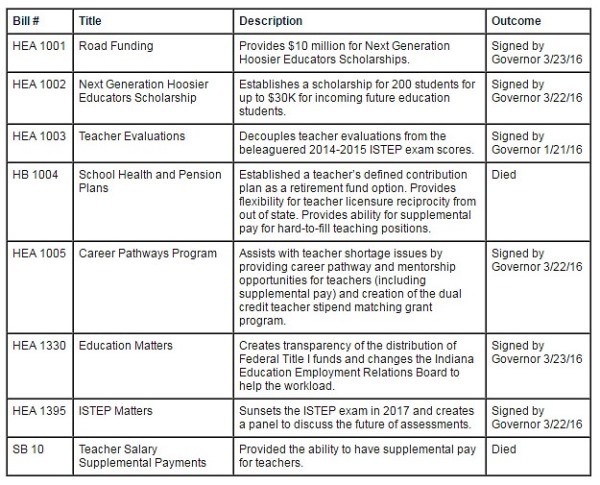 The following is a guest blog by Indiana House Speaker Rep. Brian C. Bosma (R-Indianapolis).
The following is a guest blog by Indiana House Speaker Rep. Brian C. Bosma (R-Indianapolis).
The single most important factor in student success is an outstanding teacher in the classroom. That’s why our schools need a strong hiring pool of high-quality teachers to ensure Hoosier students have the best chance of success.
To help attract and retain top talent, I authored a new law this year establishing the Next Generation Hoosier Educators Scholarship. This program, which received bipartisan support, is designed to incentivize our best and brightest high school graduates to pursue degrees in teaching and work in Indiana’s classrooms.
Beginning Nov. 1, both incoming and current college students studying education can apply for the scholarship, which awards $7,500 per year toward college costs to those who commit to teaching in Indiana’s public or private schools for five years after graduating.
The scholarship is available to 200 students statewide each year who either graduate in the top 20 percent of their class or earn a score in the top 20th percentile on the SAT or ACT. While in college, students must maintain a 3.0 cumulative GPA and complete at least 30 credit hours per year to continue receiving the grant. Graduates must obtain their teaching license and teach in Indiana for five consecutive years. The commission can make special exceptions for life’s unexpected circumstances on a case-by-case basis.
Students interested in applying must be nominated by a teacher and submit their nomination form to the Indiana Commission for Higher Education. Students are encouraged to complete the nomination form before the application period opens.
I applaud the work of the Indiana Commission for Higher Education and Commissioner Teresa Lubbers in implementing this new program and launching a promotional campaign to spread the word about this great opportunity. Students can visit LearnMoreIndiana.org/NextTeacher for information and to submit an application before the Dec. 31 deadline. The commission is also expected to launch TV, radio and digital advertisements this month.
Indiana’s new scholarship program represents a bipartisan effort with input and broad-based support from lawmakers, teachers and education organizations, including the Indiana Department of Education, Indiana Chamber of Commerce, a coalition of Indiana colleges and universities, the Indiana State Teachers Association, the Indiana Catholic Conference and Stand for Children.
This new program will help our schools attract and retain highly qualified teachers – especially for subjects like STEM and special education. Hoosier students hold the keys to Indiana’s future, and we will continue to work together to strengthen our commitment to students, teachers and schools.


 There were some notable strong successes on pro-teacher/pro-student issues during the 2016 Indiana legislative session. The Next Generation Hoosier Educators Scholarship (HB 1002) allows the Commission for Higher Education to award college scholarships for up to 200 of the best and brightest future teachers. These students must have graduated in the top 20% of their class and received the top 20th percentile scores on the SAT/ACT exams. Upon graduation, scholarship recipients have the requirement to teach in Indiana for five consecutive years.
There were some notable strong successes on pro-teacher/pro-student issues during the 2016 Indiana legislative session. The Next Generation Hoosier Educators Scholarship (HB 1002) allows the Commission for Higher Education to award college scholarships for up to 200 of the best and brightest future teachers. These students must have graduated in the top 20% of their class and received the top 20th percentile scores on the SAT/ACT exams. Upon graduation, scholarship recipients have the requirement to teach in Indiana for five consecutive years.
 Many things can be said about teachers. A number of good ones are dramatically underpaid. Some classroom veterans who don't want to adapt likely make too much (simply due to longevity) based on their current contributions.
Many things can be said about teachers. A number of good ones are dramatically underpaid. Some classroom veterans who don't want to adapt likely make too much (simply due to longevity) based on their current contributions.